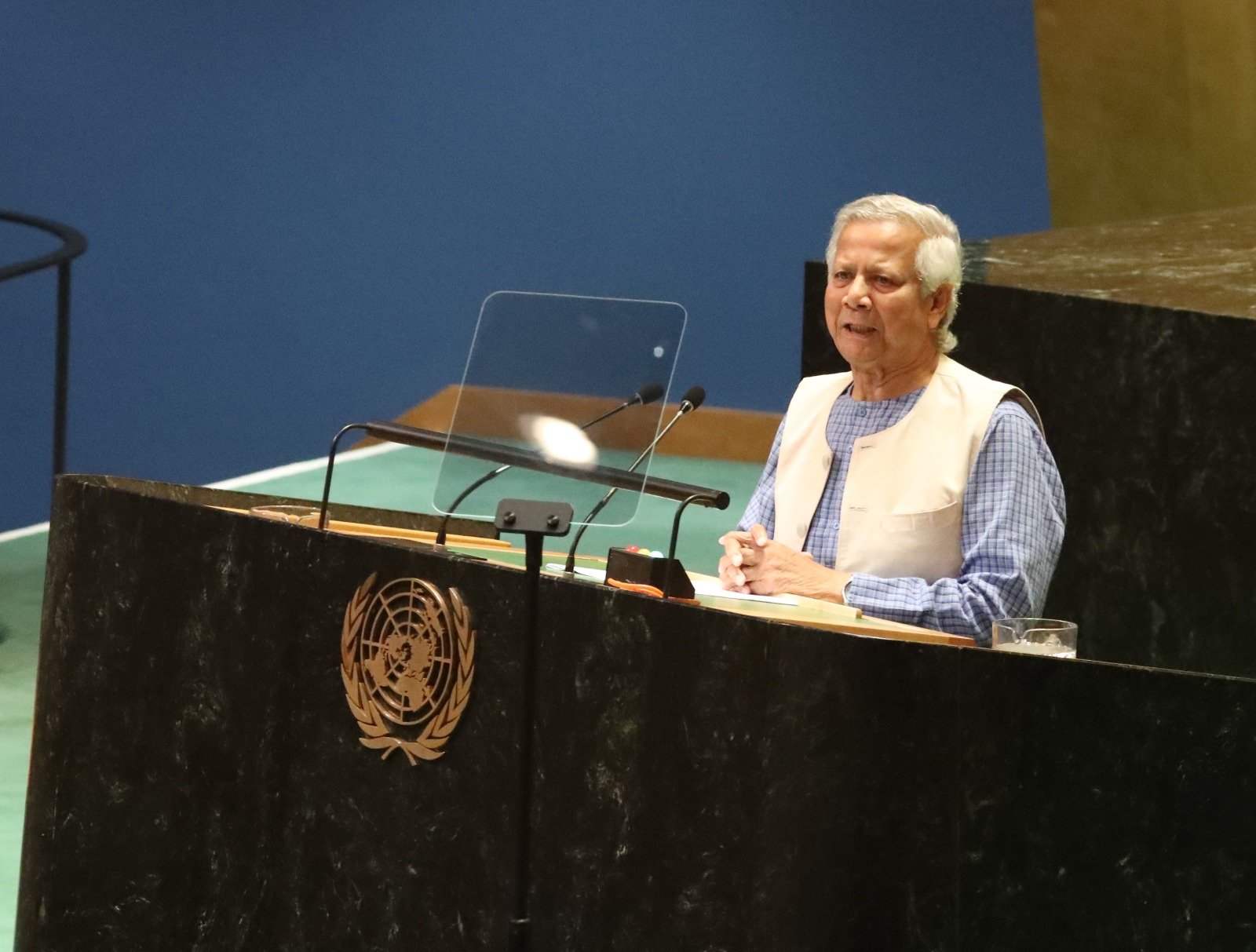
NEW YORK, Sept 27, 2024 (BSS) - Chief Adviser Professor Muhammad Yunus today suggested the world to make the 'Loss and Damage Fund' operational with additional financing aiming to deal with the adverse impacts of global climate change.
He came up with the suggestion in his speech at the 79th session of the United Nations General Assembly (UNGA) in New York.
"Climate change poses existential threats to us all. The record-breaking heatwave this summer starkly reminded the world of the climate-induced changes," he told the UNGA session while delivering his speech in Bangla.
"What we need is climate justice - so that the irresponsible choices or, indifferent actions or, harms caused are accounted for. Long-term damages leave irreparable damages all-around: we are losing bio-diversity; changing pathogens leading to newer diseases; farming is under stress; shrinking water wealth threatening habitat; rising sea level and salinity decimating eco-systems," Prof Yunus said.
He said the damages in terms of rising intensity and frequency of cyclones or floods can hardly be ignored.
"The climatic risks are faced far deeper by our small farmers and artisanal livelihood-holders. As I speak, over five million people witnessed a most devastating flood in their living memory, in eastern Bangladesh," the chief adviser said.
Reminding that UN Secretary General Guterres showed that under the "current trajectory", the world is heading for a +2.7 degree Celsius scenario, he called for channeling robust resources for climate adaptation in the climate-vulnerable countries like Bangladesh.
Prof Yunus said it is moreover crucial to operationalise "Loss and Damage Fund" by leveraging innovative solutions and additional finance.
"We equally need access to technologies and increased capacity. To be specific, we need access to live-saving technologies, particularly in agriculture, water or public health, where trickle of modest solutions or innovations can save millions of vulnerable population," he said.
The 2006 Nobel Peace Laureate said tackling climate crisis has to go hand in hand with getting global economy in order as well, while the world is increasingly focused on de-carbonisation.
"In order for such a shift to be beneficial to majority of global population, the transformative vision of a NetZero world has to redeem for countries like Bangladesh as well. Else, we risk falling short on our pledge to 'shared prosperity' through 'shared responsibility'," he said.
The world needs to engage on a shared vision of 'three zeroes' that "we can materialise together", targeting zero poverty, zero unemployment, and zero net carbon emissions, he added.
"Where a young person anywhere in the world will have opportunities to grow not as a job seeker but as entrepreneur; where a young person can unleash his or her latent creativity despite all limitations; where an entrepreneur can optimally balance social benefits, economic profits and responsibility towards nature; where social business can help an individual transcend beyond consumerism and can ultimately catalyse in social and economic transformation," the chief adviser said.
He said time demands new attitudes, new values and new compact(s) across all communities and countries, all actors and stakeholders alike.
"If we are to realise such course correction, in full, the United Nations system, national and sub-national governments, non-governmental organisations, business, philanthropies have to walk together.
If we accept and accommodate 'social business' within existing economic structures, we can bring meaningful changes in the lives of the bottom half of population, in every society," Prof Yunus said.
He said if all can realistically position social business, they can stem much of climate-insensitive distortions within the existing market economy, inviting the attention of UN Secretary General Antonio Guterres, on that score.
At the onset of his address, he appreciated Antonio Guterres for his unwavering commitment to deliver on the UN mandates and address the global challenges.
The chief adviser said the Pact for the Future and the Declaration on Future Generations could help in setting pathways beyond Agenda 2030.
"Bangladesh believes that the Summit's outcome will serve as a guiding framework in materialising our shared aspirations and re-thinking collaboration, for posterity," he added.